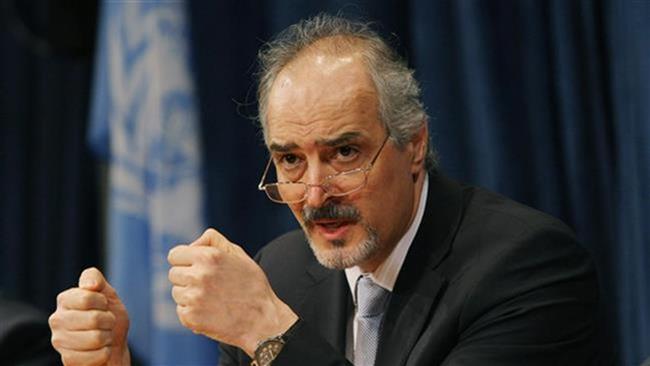Syria lashes out at US huge expenditure on training anti-government terrorists

The Syrian UN ambassador has censured the United States for its huge expenditure on training anti-Syria militants, saying Washington could have spent $500 million to tackle refugee and humanitarian crises instead of arming the terrorists fighting against the Damascus government.
Addressing a United Nations Security Council briefing on the humanitarian situation in Syria on Tuesday, Bashar al-Jaafari said, “The United States spent half a billion dollars — this is enough to fill the humanitarian deficit — half a billion dollars… within the framework of the program to train and to equip the moderate opposition.”
The Syrian official also accused Saudi Arabia and Qatar of supporting “terrorism with great generosity.”
Under the multi-million dollar program, the Obama administration trained rebels outside Syria then sent them back to the battlefield. The Pentagon has said the militant training program would “pause” and it would instead provide terrorist group leaders with equipment and air support.
The UN missions of Saudi Arabia and Qatar did not immediately comment on Jaafari’s remarks.
Since the beginning of the foreign-backed crisis in Syria in March 2011, an assortment of militant groups, including the Daesh Takfiri terrorists and the US-backed Free Syrian Army, have been formed in the country with the ultimate goal of overthrowing the Syrian government. However, the militant groups have frequently turned on each other and engaged in infighting in a power struggle and over resources.
More than 250,000 people have been killed so far in Syria due to the violence perpetrated by the terrorists.







